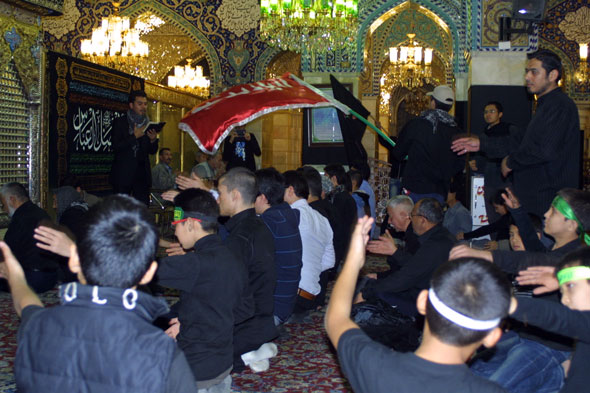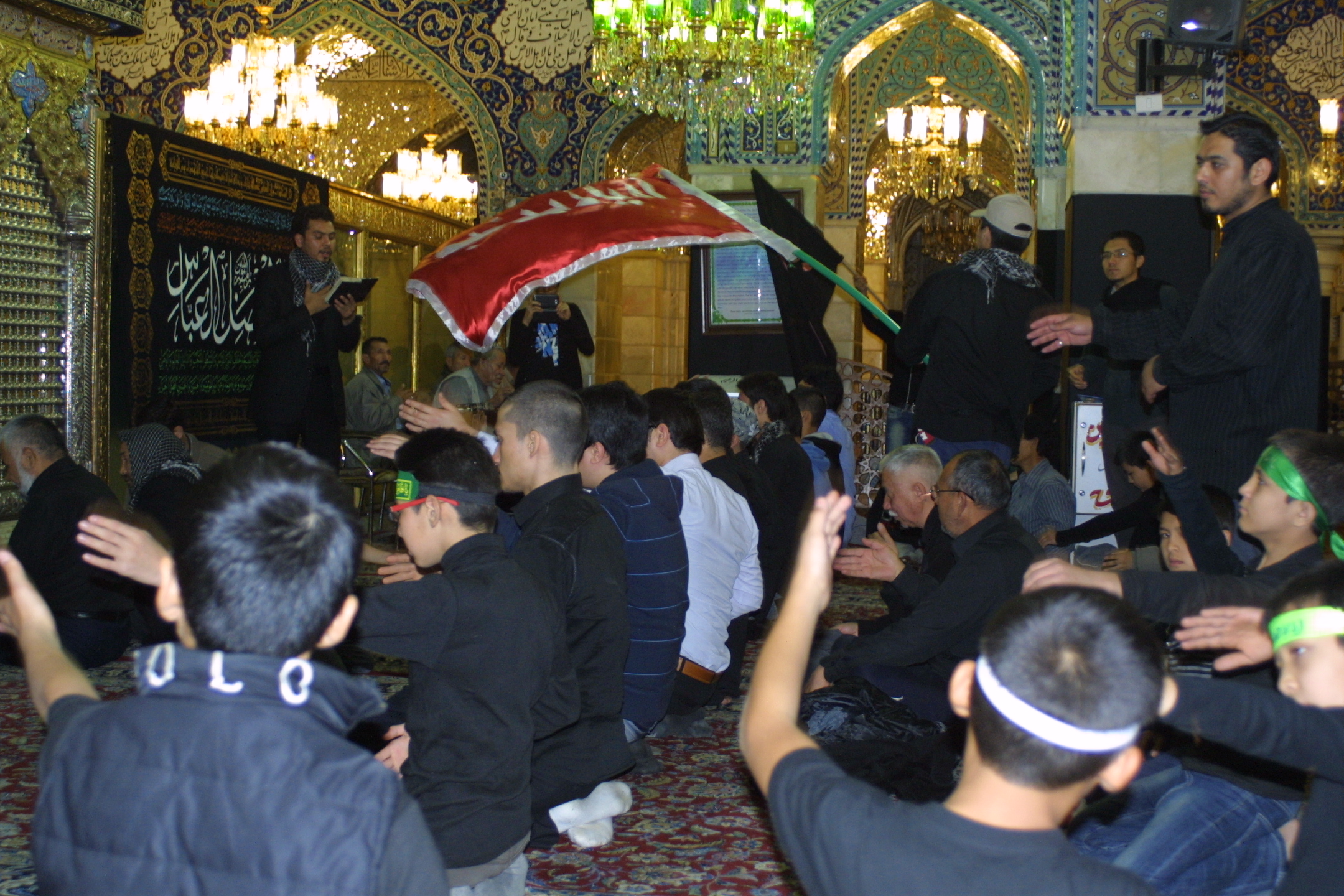
DAMASCUS, Syria — The international Syria peace talks begin Wednesday amid turmoil and confusion.
In an unexpected move Sunday, U.N. Secretary-General Ban Ki-moon had asked Iran to join the talks in Montreux, Switzerland. But on Monday, the U.N. withdrew its invitation. Ban said Iran had not agreed that Syria should be ruled by a transitional government.
Iran is a key supporter of the Syrian regime and would be an important participant in any eventual peace settlement. But the U.S. objects to Iranian involvement because of its support for Bashar Assad.
The last-minute turmoil is just one more indication that the brutal Syrian civil war seems unlikely to end anytime soon.
Months ago, the U.S. had hoped to bring international pressure on Assad to step down. But the Syrian regime, along with Russia and Iran, have rejected that plan.
Ultra-right-wing Islamist rebels, such as al-Nusra, have refused to participate in the Swiss conference at all. At Washington's insistence, the U.S.-backed rebel group, the Syrian National Coalition, agreed to attend only three days ago.
Even if the conference participants reach an agreement, there is little chance a peace plan could be carried out inside Syria, according to Joshua Landis, director of the Center for Middle East Studies at the University of Oklahoma.
"The chances of a cease-fire being upheld are slight due to the number of militias on the ground—many of which have rejected the Geneva process altogether," he said.
Landis expressed some optimism about the conference, however. Damascus proposed a cease-fire for the war-torn city of Aleppo. And it's possible Washington and Moscow could "produce a modicum of international consensus on a political solution—or at the very least—agreement that a complete military solution is unlikely."
In March, Syria's Arab Spring uprising will reach its third anniversary, with more than 100,000 dead and 5 million displaced. The original peaceful protests have morphed into a civil war—splitting the country along class, religious and ethnic lines. Foreign powers have intensified the conflict by arming Assad and the rebels.
The Obama administration claims to support democracy in Syria and arm only "moderate" fighters. But the definition of moderate shifted as the U.S. struggled to find pliable rebel groups that could advance U.S. economic, political and military interests.
"For the United States, the question is increasingly not linked to the ideologies of the rebel groups, but to their military effectiveness," said Majid Rafizadeh, a Syria expert and scholar at Harvard University.
The administration hasn't lacked a Syria policy, as some critics charge. Its policy just hasn't worked.
The U.S. cobbled together a group of exiles, armed some militia and even found a former Syrian army officer, Salim Idris, to be the titular head of the operation. But the U.S.-backed forces have steadily lost ground to both the Syrian army and extremist militias.
A turning point came in August 2013 when the administration announced plans to bomb Syria. Popular opinion at home and abroad blocked the effort. The U.S. government shut down and continuous budget crises showed that the American empire doesn't have the money or the political stomach for more, prolonged Middle East warfare.
Syrian officials say Washington may now be willing to reach a negotiated settlement. "The U.S. wants to find an exit to legitimize itself," Syrian Minister of Justice Najm al-Ahmad (pictured) said in an interview.
Civil society activists, the leaders of the initial phase in the 2011 uprising, are caught in a squeeze between the Syrian regime, extremist rebels and outside powers.
Damascus resident Leen, who asked that only her first name be used for security reasons, spends much of her time dodging Syrian intelligence and local thugs. When first interviewed two years ago, she was a leading civil society activist, fighting for a secular, parliamentary system in Syria.
"Now the military checkpoints divide up the city and repression is everywhere," she said during a clandestine meeting in Damascus. "The civil society movement doesn't exist here anymore."
Ahmad Bakdouness, another activist interviewed in 2011, helped smuggle food and medicine to civilians under government attack in the city of Homs. Then he was arrested and brutally tortured. Leen hopes that by making Bakdouness' name public, international pressure could force his release.
Mahmoud, once an avant garde playwright and journalist, also interviewed in 2011, became a devout Muslim. The former civil society leader now fights with the Free Syrian Army in southern Syria.
"We've all changed," Leen said. The civil society activists retain some popular support but have been overwhelmed by the conservative and extremist rebel groups.
By the end of last year, rebel groups faced a series of setbacks because of internal fighting. In July, the al-Qaida-affiliated Islamic State in Iraq and Syria (ISIS) took over several northern cities from control of the U.S.-backed Free Syrian Army. In November, the Islamic Front—another extremist group—seized a warehouse full of U.S.-supplied trucks, weapons and other provisions, driving out the head of the Free Syrian Army, Gen. Idris.
"Fighting among the militias is a viper's nest," Landis said. "Everyone is scrambling for power."
In the cities under its control, the ISIS imposed a harsh interpretation of Shariah law, detaining and torturing civilians, as well rebels from other groups. So the Free Syrian Army and other rebels have attacked ISIS-controlled towns for the past few weeks. The fighting continues.
The Islamic Front played an important role in the battle against the ISIS, so the U.S. is considering an alliance. The Islamic Front consists of Syrian nationalists who support Shariah law, and whose leaders call for death to all Alawites, a religious minority that tends to support Assad. Some within the Obama administration argue, however, that the Islamic Front is better than the ISIS, which is implementing immediate dictatorial rule.
In reality, the Islamic Front militias have a lot in common with the extremist rebels of the ISIS, according to Landis.
"Both idealize Islamic Empire, both reject democracy and embrace what they call shari'a, both welcome jihadists from [abroad] ... and both fly the black flag of Islam rather than the Syrian flag as their predominant emblem," Landis wrote on his website Syria Comment.
The Obama administration shouldn't classify the Islamic Front as moderates, he said. "The U.S. interventionists are grabbing at straws. They're trying to find some hope for a pro-Western force," Landis noted.
The Assad regime has tried to take advantage of the rebel infighting but with mixed results. It stepped up blockades of rebel-controlled towns on the outskirts of Damascus and dropped barrels full of dynamite on civilians living there. Rebels surrendered in some of those towns. The Assad government retains control in Damascus and some other key cities in the country's middle.
On the other hand, fighting continues in Aleppo and Homs, which the government had declared almost completely liberated three months ago. Rebels control swaths of northern and southern Syria. A Kurdish militia has taken control of much of the northern, Kurdish region.
The country is locked in a military stalemate, but neither side appears ready to reach a political settlement.
The Syrian regime hopes the U.S. will tire of its intervention and eventually reach a compromise with Russia, which supports Assad. A U.S.-Russia agreement would likely stipulate that in order to fight extremist rebels, Assad would stay in power with some kind of participation from opposition groups. So far, no rebel group is willing to consider such an option.
After three years of setbacks, the Obama administration is constantly adjusting its Syria plans. However, there are no indications that recent moves will be more successful than prior ones.
Civil society activists remain optimistic despite all the recent lapses. "The people of Syria will win against Assad," activist Leen said. "We don't need military intervention from the U.S. or anyone else."







